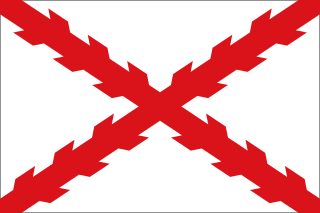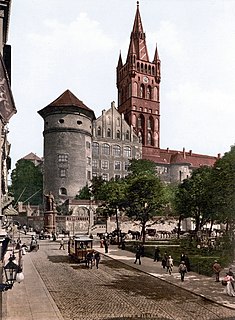Andrea Gabrieli was an Italian composer and organist of the late Renaissance. The uncle of the somewhat more famous Giovanni Gabrieli, he was the first internationally renowned member of the Venetian School of composers, and was extremely influential in spreading the Venetian style in Italy as well as in Germany.
Pomponio Nenna was a Neapolitan Italian composer of the Renaissance. He is mainly remembered for his madrigals, which were influenced by Gesualdo, and for his polychoral sacred motets, posthumously published as Sacrae Hebdomadae Responsoria in 1622.
Vittoria Aleotti, believed to be the same as Raffaella Aleotti was an Italian Augustinian nun, a composer and organist.

Peter Philips was an eminent English composer, organist, and Catholic priest exiled to Flanders. He was one of the greatest keyboard virtuosos of his time, and transcribed or arranged several Italian motets and madrigals by such composers as Lassus, Palestrina, and Giulio Caccini for his instruments. Some of his keyboard works are found in the Fitzwilliam Virginal Book. Philips also wrote many sacred choral works.

Richard Dering — also Deering, Dearing, Diringus, etc. — was an English Renaissance composer during the era of late Tudor music. He is noted for his pioneering use of compositional techniques which anticipated the advent of Baroque music in England. Some of his surviving choral works are part of the repertoire of Anglican church music today.
Stefano Rossetto was an Italian composer of the late Renaissance, born in Nice, who worked mainly in Florence for the powerful Medici family, and in Munich.
Jacob Regnart was a Flemish Renaissance composer. He spent most of his career in Austria and Bohemia, where he wrote both sacred and secular music.
Thomas Elsbeth was a German composer.
Marko Ivan Lukačić was a Croatian-born musician and composer of the Renaissance and early Baroque.
Philipp Dulichius was a German composer.
Tiburzio Massaino was an Italian composer.
Alexander Utendal was a Flemish composer.
Vincenzo Ugolini was an Italian composer of the early Baroque era and of the Roman School.

Johann Stobäus was a North German composer and lutenist.
François Regnard was a French Renaissance composer. He studied, sang, and later was maître de chapelle at Tournai Cathedral. He is mainly remembered for his settings of Ronsard's chansons.
Giovanni Paolo Caprioli was an Italian priest, abbate in Candiana, and composer. Caprioli-Capriolo Giovanni Paolo. Born in Brescia in 1571 ca. and here she died in the convent of St. John the Evangelist during the plague in January 1630. The noble family from Brescia Caprioli is attested in documents citizens since the eleventh century. Gentlemen from the time of Henry III of the lands of Capriolo (BS), moved into town in the early fourteenth century living in different buildings but particularly in the palace Caprioli Via Elia Capriolo. The family was the birthplace of two important musicians: Alfonso Antonio Caprioli and John Paul that in 1587 she entered the convent of Scandiano (PD) belongs to the Congregation of the Rhenish Lateran Canons of SS. Savior of Bologna. In this religious order the severity and austerity of monastic life married with a keen sensitivity to the artistic decoration of the churches and a special interest in a cultural qualification through the study. Figures of great composers and organists will require a bit 'anywhere in the various convents of the Congregation, especially in Bologna, Mantua, Venice and Brescia, where, in the rectory of St. John is the strong influence of traditional instrumental and vocal production environment Brescia Renaissance and Baroque. Among the major players operating in the convent Brescia remember Floriano Channels, Angelo Maria from Peschiera, Leone from Bologna, Dionysius from Fano, Peter Knights, Giovanni Artusi, Pietro Andrea Ziani, Carlo Maffei and not least John Paul Caprioli which we can thank the studies of Oscar Mischiati retrace his monastic pilgrimage:

Cantiones sacrae, Op. 4, is a collection of forty different pieces of vocal sacred music on Latin texts, composed by Heinrich Schütz and first published in 1625. The pieces have individual numbers 53 to 93 in the Schütz-Werke-Verzeichnis (SWV), the catalogue of his works. The general title Cantiones sacrae was common at the time and was used by many composers, including Palestrina, Byrd and Tallis and Hans Leo Hassler (1591).
Ivo de Vento was a Franco-Flemish composer, organist and Kapellmeister of the High Renaissance.

Giovanni Battista Pinello di Ghirardi was an Italian music composer and Kapellmeister of the Italian Renaissance.













